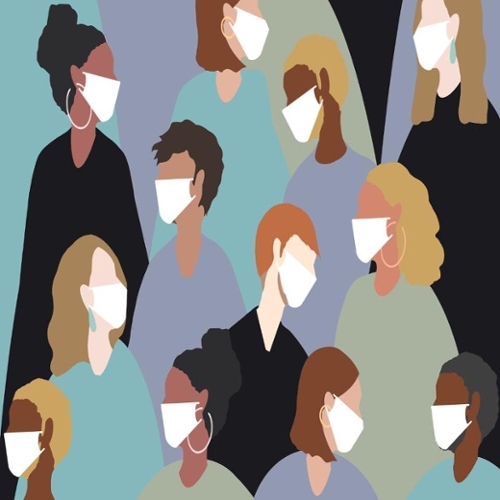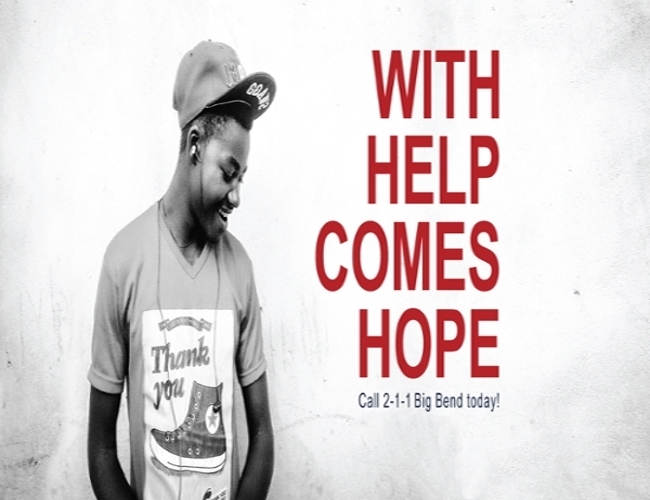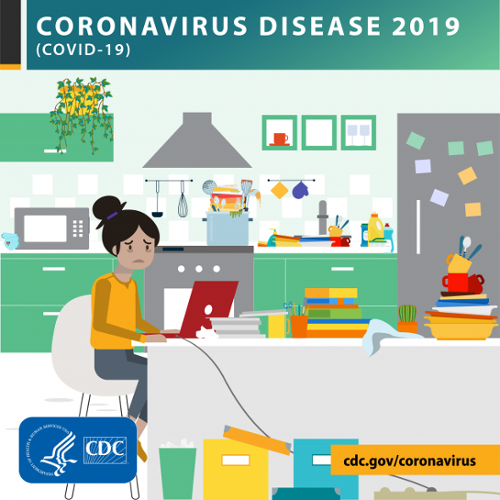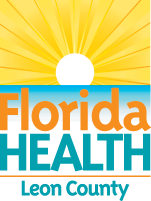It's a New Day in Public Health.
The Florida Department of Health works to protect, promote, and improve the health of all people in Florida through integrated state, county, and community efforts.
Mental Health and Coping During COVID-19
August 13, 2020
Mental Health and Coping During COVID-19
Mental Health and Coping During COVID-19

“Mental health must always be an important point of emphasis in disaster response and recovery – especially for individuals already suffering from mental health issues, individuals affected by the disaster directly and health care workers and first responders. In Florida, I am proud of the steps being taken by several state agencies during the COVID-19 public health emergency to offer mental health services and support.”— First Lady of Florida Casey DeSantis.
The COVID-19 pandemic is pushing many into a mental health crisis. Federal agencies and experts in the greater Tallahassee area warn that a historic wave of mental-health problems is approaching bringing depression, substance abuse, post-traumatic stress disorder, and suicide.
Crisis counselors says it's normal to feel stress related to the COVID-19 pandemic and the pressures that it presents. Many of us feel stretched and stressed and are letting go of some of the coping strategies that have helped us.
In Leon County, 2-1-1 Big Bend has seen a significant spike in calls to its 24-hour crisis hotline since the start of the pandemic. Volume remains high. Program administrators report there are about 400 calls about COVID-19 daily.
Now, with the current climate of police brutality protests and national unrest, they want to make sure people know they have a place to turn if their mental health begins to suffer.
2-1-1 Big Bend Development and Communications director, Christopher Turner, encourages people to not be afraid to reach out.
"Just continue to keep going and continue to care for your mental health," said Turner. "It's okay to take a step back and limit the amount of media you consume and don't feel bad if you need to take care of yourself."
Turner says many people calling in are worried about the virus and what they can do to make sure they don’t get it.
During this crisis, the agency is fully operational and anyone who needs help, or just someone to talk to, can call 211. They want those in crisis to know they don’t have to suffer in silence.
The organization offers help with issues ranging from access to food, to mental health services, to getting more information about the coronavirus
Turner wants to remind people that though things may be tough, and you could be struggling right now, 2-1-1 is positioned and trained to help.
2-1-1 Big Bend President Randy Nicklaus says counselors have up-to-date information about all of the varied, available services the organization provides to those in need. “We are constantly answering questions about financial situations they’re struggling with. They may have lost their jobs. They may be worried about food. So, we’re trying to help them with what in the community is available,” Nicklaus says.
Counselors also stay up to date on what’s happening with COVID-19 with timely, accurate, and reliable information. “If people are worried about something, first of all are they worried about accurate information? We can help provide information to make sure they’re not worried about something that’s not really a true thing that’s going on. Sometimes they’re worried about rumors and myths about something, so we can help correct that and also give them the correct information,” Nicklaus says.
In addition to calls about information and anxiety, Nicholas says the hotline has seen an increase in suicide related calls. 211 Big Bend operates as a suicide hotline.
“So, we have seen the trend in that area, and I suspect that other areas, like domestic violence, substance abuse, will increase as a result of what’s going on. Time will tell what we see on our hotline,” Nicklaus says.

Some counselors say what keeps them up at night is the concern about people the mental health system just won’t absorb or won’t reach, and the suffering that’s going to go untreated. Many believe the realities of the pandemic underscore the need to change the narrative about mental health to one that’s non-clinical and non-stigmatized.
The time is now.
Numbers shows depression and anxiety already roiling the nation.
Nearly half of Americans report the coronavirus crisis is harming their mental health, according to a recent Kaiser Family Foundation poll.

The CDC listed People who may respond more strongly to the stress of a crisis:
- People who are at higher risk for severe illness from COVID-19 (for example, older people, and people of any age with certain underlying medical conditions).
- Children and teens.
- People caring for family members or loved ones.
- Frontline workers such as health care providers and first responders,
- Essential workers who work in the food industry.
- People who have existing mental health conditions.
- People who use substances or have a substance use disorder.
- People who have lost their jobs, had their work hours reduced, or had other major changes to their employment.
- People who have disabilities or developmental delay.
- People who are socially isolated from others, including people who live alone, and people in rural or frontier areas.
- People in some racial and ethnic minority groups.
- People who do not have access to information in their primary language.
- People experiencing homelessness.
- People who live in congregate (group) settings.
The Centers for Disease Control and Prevention has a dedicated page on its COVID-19 site with information on coping with increased stress in these challenging times.
Healthy ways to cope with stress
- Know what to do if you are sick and are concerned about COVID-19. Contact a health professional before you start any self-treatment for COVID-19.
- Know where and how to get treatment and other support services and resources, including counseling or therapy (in person or through telehealth services).
- Take care of your emotional health. Taking care of your emotional health will help you think clearly and react to the urgent needs to protect yourself and your family.
- Take breaks from watching, reading, or listening to news stories, including those on social media. Hearing about the pandemic repeatedly can be upsetting.
- Take care of your body.
- Take deep breaths, stretch, or meditate.
- Try to eat healthy, well-balanced meals.
- Exercise regularly.
- Get plenty of sleep.
- Avoid excessive alcohol and drug use.
- Make time to unwind. Try to do some other activities you enjoy.
- Connect with others. Talk with people you trust about your concerns and how you are feeling.
- Connect with your community- or faith-based organizations. While social distancing measures are in place, consider connecting online, through social media, or by phone or mail.
If you or someone you know needs help, call the helpline at 2-1-1 for free confidential crisis counseling 24-hours a day. Just dial 2-1-1 or (850) 617-6333 or text your zip code to 898211.
Immediately, you will reach caring, trained counselors who can provide supportive counseling and information about and referrals to programs in the Big Bend area. They are available any time of the day or night to just talk, listen, or help callers find the resources they need.
Learn more about coping during challenging times of COVID-19 here: https://www.cdc.gov/coronavirus/2019-ncov/daily-life-coping/managing-stress-anxiety.html
Pamela Saulsby | Public Information Officer




Connect with DOH